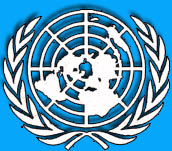Nepal faces multiple challenges to its peace process, UN says
 Kathmandu - A senior United Nations official said Friday that Nepal faced multiple challenges to its peace process despite making tremendous progress in ending its decadelong conflict that pitted the government against Maoist rebels.
Kathmandu - A senior United Nations official said Friday that Nepal faced multiple challenges to its peace process despite making tremendous progress in ending its decadelong conflict that pitted the government against Maoist rebels.
While the election in April of a constituent assembly was a landmark achievement, major hurdles lie ahead for the successful conclusion of the peace process, said Ian Martin, the head of United Nations Mission in Nepal.
"Sustaining peace requires efforts to heal the wounds of the conflict - to clarify the fate of those who disappeared, compensate victims, enable the return of displaced persons to their homes and to end impunity," Martin said.
Martin also called for a speedy resolution of the future of Maoist combatants who have remained in 21 UN-run camps spread across the Himalayan nation.
"No peace process can be said to be complete while there are two armies in one country," Martin said. "I hope that the efforts to integrate and rehabilitate Maoist combatants on a multiparty basis, as agreed, will soon be successful."
The issue of integrating former guerilla fighters into the national army has been embroiled in controversy with major political parties opposing the large-scale integration.
The Nepali Congress, the main opposition party in the assembly, has accused the ruling Maoists of trying to flood the army with its cadres and eventually tighten its grip on power.
Of the original 31,000 Maoist combatants, just more than 19,000 passed the rigid verification process conducted by the United Nations.
Disqualified combatants included nearly 4,000 minors and those recruited by the Maoists after a ceasefire announcement in May 2006.
The fate of disqualified combatants also remained unclear although there was an agreement to discharge and rehabilitate them.
"The UN has resumed discussions with the Maoist-led government and with the Maoist combatants about the need for speedy discharge of those who failed verification and still remain in the cantonments," or UN camps, Martin said.
Maoist formally gave up fighting following the toppling of the King Gyanendra's government in April 2006 in a mass protest movement.
They signed a peace deal with the government in November of the same year and joined mainstream politics.
The Maoists emerged as the single largest party in the constituent assembly in April elections. The assembly voted overwhelmingly to abolish the monarchy two months later.
The constituent assembly is responsible for drafting a new constitution within two and half years as well as act as a parliament. (dpa)